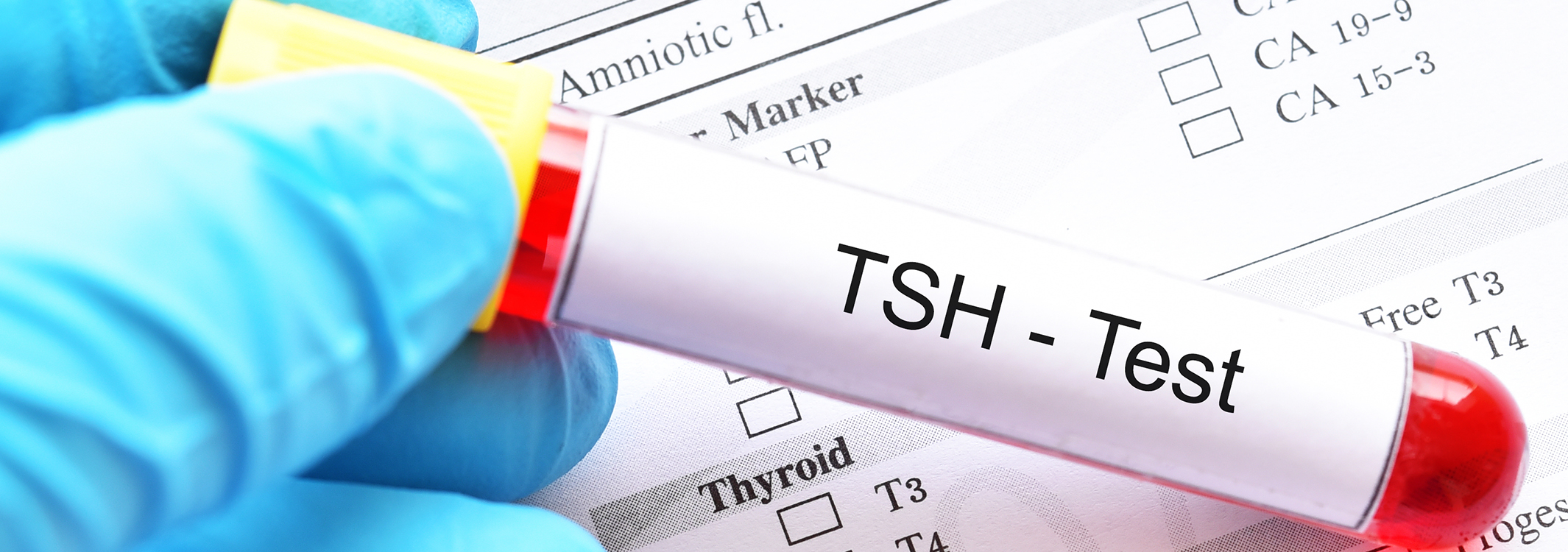
Why testing TSH alone is not enough!
Testing TSH levels is the standard of care most MDs follow-up to analyze potential imbalances in the thyroid gland. In this blog post, we’ll discuss why testing TSH alone is not enough.
What is TSH? TSH is Thyroid Stimulating Hormone. This hormone should go up and down according to your body’s needs and environment. Those needs, like temperature regulation, food intake, stress level and amount of activity, should produce natural changes in the amount of thyroid hormone produced. This production should work a little like your thermostat at home, when it’s cold, the thermostat tells the furnace to turn on and warm the house. In the thyroid system is the hypothalamus and pituitary in the brain that work like the thermostat, checking the amount of thyroid hormone in the blood to send the message to the thyroid about whether the body currently needs more or less.
TSH is not a thyroid hormone; it is a hormone the thyroid responds to. This is important because this means we are depending on the hypothalamus and pituitary to be healthy and functioning properly. These glands, like many others, are affected by stress, environmental toxins, nutritional deficiency, use of stimulants such as caffeine and nicotine, infections and other hormone imbalance including estrogen dominance. The possibility of dysfunction with this piece of the endocrine system is not factored into TSH assessment.
Conversion matters. The pituitary and hypothalamus are using blood levels of both T3 (active thyroid hormone) and T4 (inactive thyroid hormone) to determine whether the body’s needs are being met. The problem with that is they don’t differentiate between the two. There may be enough T4 being produced to keep the pituitary and hypothalamus satisfied, but if T4 is not being converted by the body in the tissues and organs, into the active form, T3, symptoms of thyroid dysfunction remain. You may not be surprised to learn that many of the things that can interfere with the function of the pituitary and hypothalamus can also inhibit this conversion.
All T3 is not created equal. T3 is a metabolite of T4. The body can convert T4 into T3 or to act as the brakes and slow things down, it can also Reverse T3 (rT3) a similar looking hormone with one of its iodine molecules on backward. As you might expect, these two hormones behave very differently. If you are making too much rT3 this can be a sign of acute or chronic stress or illness. RT3 fits into those thyroid receptors and slows down metabolism to conserve energy. Those who are low converters may have an increase in symptoms and severity if they are treated with T4 only prescriptions if the body converts to mostly rT3 and blocks further receptors.
T3 can’t get into cellular receptors. This is complex problem. T3 is bound to carrier-proteins to move around the body. T3 must be actively separated from these proteins to fit nicely into thyroid hormone receptors and do its’ job. Other times it is the cell membrane itself, bogged down by stress hormones, inflammation and toxins, that interfere with those receptors. If T3 can find an open receptor it requires a binding-protein keep it in place and activate. Diet and lifestyle can have a tremendous impact if this is where the problem lies.
Autoimmunity can cause fluctuations in thyroid hormones. Destruction of the gland itself releases hormones stored in the gland into the bloodstream. This phenomenon can keep blood levels of thyroid hormones in an acceptable range for a long time before the gland is damaged sufficiently to elevate TSH.
Functionally it is helpful to test:
- TSH
- Free T3
- Free T4
- Antibodies (Anti-TG and Anti-TPO)
Utilizing TSH alone can mean a person is experiencing symptoms for quite a while. I believe we deserve better care than that. If you think so too, consider signing this Petition To The Government of Canada.
Sources:
https://www.healingrootsclinic.com/the-thyroid-5-reasons-why-testing-only-tsh-isnt-enough/
